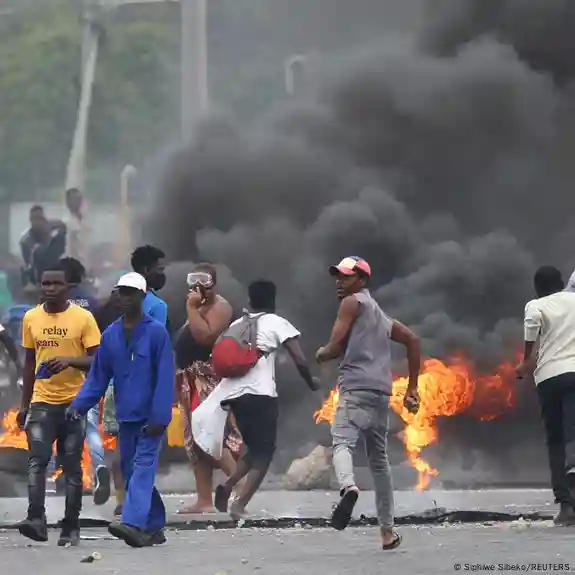BBC
It is difficult to try to predict the decisions that US President-elect Donald Trump will make when he returns to the White House.
But one thing seems unlikely to change: his dislike of patient, principled diplomacy as a means to peace and his preference for transactional politics and populist gestures.
This brings openings and perils in some areas in Africa.
Eight years ago, the Obama administration was working with the African Union (AU) to change United Nations (UN) rules for funding peacekeepers to put African missions on a firm financial basis.
The AU Commission worked with the UN and other multilateral organisations to construct an “African peace and security architecture” that ranged from proactive diplomacy to avert looming conflicts through to coordinated mediation efforts and peacekeeping operations, all underpinned by norms and principles enshrined in the UN Charter and the AU Constitutive Act.
How long ago that seems.
Plans for more robust peacekeeping evaporated in the transition to the first Trump administration.
Since then, no new UN or AU peacekeeping missions have been authorised. Several – including in Darfur, Sudan and Mali – have been closed, and others scaled down.
The Biden administration did not reverse the trend.
The idea of “liberal peace” – that peace, democracy, justice and open markets all go together – had long been a powerful strand in US global strategy.
The AU embraced its multilateralism but recoiled from being lectured on human rights and democracy and were divided on Western military interventions such as in Libya.
Some African leaders preferred Trump’s candour and focus on results.
The “Trump Doctrine” for the Middle East and Africa swept aside multilateralism in favour of transactional deals with American allies in Egypt, Morocco, Saudi Arabia, the United Arab Emirates (UAE) and, above all, Israel.
Prime Minister Benjamin Netanyahu and UAE President Mohamed bin Zayed set the strategy of the Abraham Accords, and Trump basked in the glory when Arab countries signed up.
Trump’s other consistent positions were hostility towards China’s influence on the continent and aversion to deploying American soldiers.
Ethiopia’s decision to build a huge dam on a tributary of the River Nile has caused tensions with Egypt
At the request of Egypt’s President Abdul Fattah al-Sisi – described by Trump as “my favourite dictator” – then-Treasury Secretary Steven Mnuchin took charge of mediating Egypt’s dispute with Ethiopia over the Nile waters.
The immediate issue was how much water would be retained by the Grand Ethiopian Renaissance Dam as it approached completion.
As the talks faltered, Washington put its thumb on the scales, suspending aid to Ethiopia, while Trump suggested that Egypt might “blow up” the dam.
America recognised Morocco’s claim over Western Sahara in exchange for Rabat signing the Abraham Accords and thereby recognising Israel.
In the era of “liberal peace”, an agreement to end a civil war was the drafting of a democratic constitution, along with measures for disarming and demobilising rival armies, transitional justice and reconciliation, and aid-funded programmes to deliver a peace dividend for the afflicted populace.
The first Trump administration preferred direct deal-making, whereby autocrats cut a private bargain over the counter. Scholars call this the “illiberal peace”.
When then-Secretary of State Mike Pompeo visited Sudan after the popular revolution that led to the ousting of military-Islamist ruler Omar al-Bashir, his main agenda was a simple trade: America would lift sanctions when Sudan agreed to sign the Abraham Accords.
On the heels of deals with Bahrain and the UAE, and weeks before Americans voted in the presidential election, this was Trump’s “October surprise”.
It came too late to save Sudan from the economic crisis that crushed its democratic experiment and fell away after Trump lost to Joe Biden.
But it’s fair to assume that the second Trump administration will continue this way.
The exact alignments and deals are impossible to predict, and much will depend on the individuals appointed to key positions. But the “liberal peace” is now dead and buried.
Sudan is currently Africa’s largest war and its biggest famine for decades. There is no sign that Trump is concerned.


Connect with us on our socials: